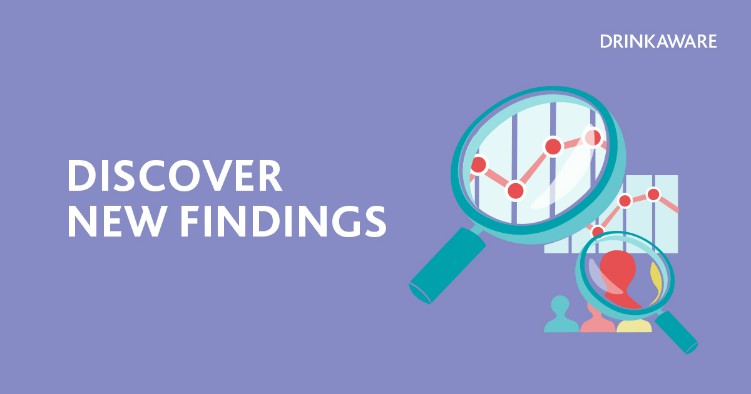The Healthy Ireland Survey 2018 results, released today, highlighted a consistent trend for binge drinking since the survey began in 2015, with 37% of people binge drinking on a typical occassion. This finding reflects recent Drinkaware research, which found that less than 3% of Irish adults can correctly identify the HSE low-risk alcohol guidelines. This might suggest that people are not fully connecting how regularly drinking above these guidelines can negatively impact their overall health and wellbeing and increase the risk of experiencing related harms. Through our work to reduce alcohol misuse, Drinkaware will continue to proactively provide clear information and resources to support better understanding of standard drinks and the low-risk guidelines to help bridge this information gap and make it easier for people to make positive changes to their drinking habits.
Key findings on alcohol:
- 55% of people drink on a weekly basis
- Of those who binge drink on a typical occasion, there is a clear gender divide – 19% women, 54% men
- Binge drinking levels are highest among younger men however, a consistent level of over half of men continue to binge drink later in life. 64% of men aged 25-34 years binge drink, compared to 56% aged 35-44 years and 52% aged 55-64 years.
- Older drinkers are more likely to drink more freqently. 59% of people aged 65 and older drink at least once a week, compared to 47% of those aged under 35 years.
- Drinkers from more disadvantaged areas are more likely (43%) to binge drink than those from more affluent areas (33%).
Find out about the benefits of drinking less alcohol
KNOW THE GUIDELINES
Are you drinking within the HSE low-risk alcohol guidelines? It’s important to get the facts on the guidelines to make it easier to see how much you are really drinking over the week. Remember, these are guidelines – not a target.
- 11 standard drinks (110g pure alcohol) spread out over the week for women, with at least two alcohol-free days
- 17 standard drinks (170g pure alcohol) spread out over the week for men, with at least two alcohol-free days
Binge drinking is defined as drinking six or more standard drinks in one sitting. Common examples of one standard drink are a half pint of lager/stout/cider, a 100ml glass of wine or pub measure (35.5ml) of spirits. On average, it takes one hour for the body to process one standard drink and there’s no quick fix – only time.
Try our Drinks Calculator to see if you are drinking within the guidelines
MAKE SMALL CHANGES TO DRINK LESS
Stuck for ideas? Here are some small steps you could take to drink less alcohol and improve your health and wellbeing. The next time you drink alcohol, why not try some of our quick tips? Remember, everyone’s motivation for drinking less is different so it’s important to choose small steps that work for you.
- Always use a standard drink measure: never free-pour spirits or wine. Order one for free
- Never top up your wine glass – always finish one glass before refilling. Topping up your glass makes it harder to track how much you’re drinking.
- Stay out of rounds – you may end up drinking far more than you intended as you are more likely to drink at the pace of the fastest person in the group.
- Set yourself a limit on a night out. If you usually go for an after-work drink on a Friday, why not set a limit on the number of drinks you will have in advance? Keeping this number in mind will help you to keep track and stick to it.
- Alternate each drink with a glass of water to reduce the dehydration associated with alcohol. Keep a jug of water on the table to make this easier.
- Take advantage of the increasingly available lower or no-alcohol beer or wine and swap out your usual drink.
- Break your habits at home. This can seem like a nice way to unwind after a long day but it can often result in drinking more than usual. If your normal night in includes a drink in front of the TV, consider doing something different like going for a walk or try not to keep alcohol in the house.
- If you would like to stop drinking completely, we have some advice to help.


